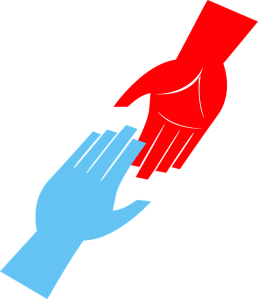Most health professionals I have worked with have been afflicted with imposter syndrome, and low and behold I have found that researchers are afflicted with the same condition. I think I first became aware of this concept just after I graduated as a speech and language therapist (SLT- many moons ago). I recall a particular event; a joint session with a dietitian, where we visited a gentleman at home and decided he needed to be admitted to A&E that day. We contacted the consultant in A&E and the ambulance service and organised his admission. We both came away and felt rather surprised that we had been able to be so professional, and kept our fingers crossed that we had made the right decision. Turns out we did!
Since then I have continued to experience the odd bout of imposter syndrome but am generally able to employ my skills in “being professional” to put my fears aside and get on with it. And if I do this a couple of times the emotions subside and the activities I am engaged with become ‘normal’. I read an article a couple of years ago describing this exact feeling in nursing students- they described how a new graduate may spend a lot of time as a duck paddling furiously underwater (apparently gliding to any external observer) and then over time they refine their stroke so they can actually glide. The article explained that every time you try a new task you haven’t previously tried you spend some time paddling against the rapids until you can glide again. But over time these rapids are fewer and further apart (although never completely eliminated). The key in this scenario if being able to prioritise, act professional and get on with it.
Since I started my PhD I have spent more time paddling than I have had to in the previous few years. But recently I have realised that the paddling stroke I learnt as an SLT is a transferable skill. I was taught to be professional, to focus on the matter at hand and use humour to build rapport (but only when appropriate) and to follow up on commitments (aka deadlines). These are extremely useful skills in all sorts of research based situations: running focus groups, interviews; networking; collaborating; writing; ethics applications; taking constructive criticism; engaging with users and the public…not least with participants.
In short I feel I have more transferable skills than I anticipated. I have faced a new situation and am occasionally gliding now. Although I do see a couple of rapids ahead, I reassure myself that with the support of my supervisors, my mentor, my supporters, colleagues and friends I can navigate the waters. So to all those clinicians who are worried about swimming down the research route: don’t worry so much. Look at your weapons, your skills and your professionalism and apply it! They seem to work quite well here too. And you will not be lonely. There is a team of skilled people around you at all times to give advice and act as look out. We can weather the occasional imposter syndrome storm; in fact these storms are useful ways to refine weapons, strokes and skills.

